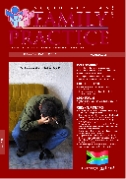Treatment for Substance Abuse in the 21st century: A South African Perspective
Keywords:
Substance use, Disease, Empowerment, Alternate Strategies
Abstract
Background: It has become increasingly difficult to assist an individual to maintain long term recovery from substance abuse. Irrespective of which treatment centre the individual has been to, none guarantees a successful recovery. This is frustrating to individuals, their families and also service providers. The reason for this trend is not absolutely clear. Many treatment centres are rigid in use of their programs and depend on aftercare to improve recovery rates. Service providers are increasingly acknowledging that there is no one “best" treatment option as there are too many variations and complexities in reaching the goal of freedom from dependence and social reintegration. Hence the focus of this article, which is based on research to identify strengths and weaknesses of the different models/programs used in different residential treatment centres in South Africa with a view to recommending changes to accommodate such complexities and sustain recovery. Methods: Qualitative methodology was used to assess the strengths and weaknesses of programs at three key residential rehabilitation centres in South Africa. The sample comprised both patients and service providers at each centre and the research instrument was focus group discussions in the former case and individual, semi-structured interviews with the latter. Non probability, criterion sampling was employed to secure participation of the required categories of treatment centres and probability sampling thereafter, based on availability and access. Results: Despite tradition dictating a fairly rigid program, most of the centres’ staff and patients requested attention to the bio-psycho-social instead of being uni-dimensional such as attention to the physical as in the case of the disease model. A key finding was the need for a paradigm shift away from the disease model with accompanying helplessness, to that of a holistic approach that emphasizes empowerment, embraces alternate strategies such as massage, sauna for detoxification, dietary improvements, physical activity and language that is consistent with power and control. Centres were also employing a multi-disciplinary team, consistent with focus on the “mind, body and spirit", albeit requesting for additional staff to comprehensively and effectively address all these aspects in patients. Thus, they also accorded importance to the spiritual dimension of the patient, although this did not always translate to action or program content. Conclusion: The weakness of existing programs was thus clearly found to lie in a uni-dimensional philosophy and program that was repetitive and unchanging. Staff and students identified the need for more holistic, comprehensive and creative approaches. These had to compliment traditional strategies, rather than replace them, in accord with the multi-faceted and multi-layered complexities of substance abuse. In keeping with this finding, was the call for in depth interventions to make the transition from being an addict, to one who is empowered and free from dependence. Users must not be viewed as victims of their circumstances but be encouraged to reclaim an inner locus of control.
Published
2008-09-02
Section
Original Research
By submitting manuscripts to SAFP, authors of original articles are assigning copyright to the South African Academy of Family Physicians. Copyright of review articles are assigned to the Publisher, Medpharm Publications (Pty) Ltd, unless otherwise specified. Authors may use their own work after publication without written permission, provided they acknowledge the original source. Individuals and academic institutions may freely copy and distribute articles published in SAFP for educational and research purposes without obtaining permission.

